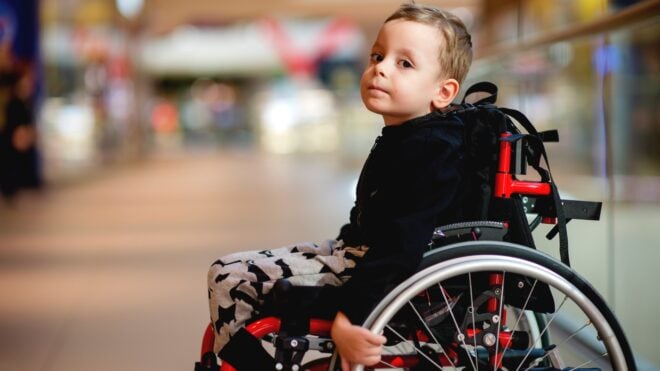
In my first few years as a parent, I wasn’t sure how to discipline my kids. I knew I wasn’t going to spank — and that was about it. I was determined to raise well-behaved, respectful children, but like many new moms, I wondered how I was going to make that happen when it came to rewarding and punishing my children for their behaviors.
We now have four children — a teen, a tween, a fourth-grader, and a kindergartner — and we practice gentle parenting. It’s been a total game-changer for us to ditch the pressure of generating punishments, especially on the fly.
You’re probably wondering if gentle parenting actually works
I mean, it sounds rather delicate and ineffective to those of us who were raised with old-school parenting methods. You might be wondering, how will kids learn manners, respect, and self-control without swift and harsh consequences for their actions?
Gentle parenting has taught us that first, we need to understand that our children are people. They aren’t robots who should be forced to obey us at all costs. This doesn’t generate true respect, anyway. Authoritarian parenting breeds resentment, frustration, and unnecessary drama. Furthermore, it doesn’t teach children skills like problem-solving, critical-thinking, advocacy, or self-respect.
The goal of discipline is to teach and guide our children, not throw out random consequences in response to their bad behavior moments. And trust me, kids have a lot of moments. Children are, after all, people with feelings, opinions, and experiences. They aren’t blank slates waiting for us to dictate their every action. Plus, they are rapidly growing and developing. They need space to do this.
Take, for example, your child who forgets their homework at home
They didn’t put it in their backpack the night before, despite this being a consistent expectation. You’ve even reminded them multiple times! Now, you could take away their tablet for a week, sure. But what does that have to do with forgetting their homework?
Gentle parenting helps parents become detectives-of-sorts. We need to figure out the root cause of our child’s actions. We do this by asking for their side of the story. “I noticed that you left your homework on the kitchen counter this morning. What happened?” We ask them when the child is in a good place to talk. They are calm, don’t need a snack or a good night’s rest, and aren’t rushing out the door to soccer practice. We are face-to-face, using a neutral tone of voice.
We approach situations with curiosity and a common goal of solving the problem
Your child may have forgotten their homework because they were preoccupied with laying out their clothes for the next day — another expectation. Maybe they were extra tired and truly forgot. Perhaps they were rushing through their nightly to-do list to watch a promised TV show.
Whatever the reason, ask your child, “What will help you remember your homework next time?” If your child doesn’t know, brainstorm together. Would it be setting the alarm? Perhaps they write a note to post on the back of the door. The solution might be very simple — and when they help generate it, it’s more likely to be successful.
There’s no need to jump to some sort of punishment to really drive home your frustration
The reality is that your child has already had a consequence. They forgot their homework, so whatever the school decides is the result of that is the result. There’s no need to overpunish, especially not by revoking something totally unrelated.
It’s perfectly fine to have a boundary. You will not be able to bring them forgotten items because you have to work or have other obligations.
Just because you are a gentle parent, you aren’t a doormat
Gentle parenting seeks to see the child as a flawed and in-process human in need of parental guidance and support. We, as adults, are really no different than our children in terms of the fact that we’re still learning, adapting, and growing as people.
When we come alongside our kids, letting them know we’re there for them, this doesn’t save them from the consequences. Instead, it teaches them that we are their safe place to fall as they navigate life.
Just in case you need a little more of a push, it’s a hot mess to keep track of random punishments
Think of the stress it causes you to figure out, in the moment when your child screws up, what to take from them. It never goes well. Plus, then you have to remember to enforce the consequence.
Your child will end up begging you to give in, and you may or may not do that. The random punishments only put distance between you and your child instead of teaching them.
There are so many wonderful resources on gentle parenting on social media, as well as books, articles, and podcasts. This article is a mere overview of gentle parenting and why it works. I implore you to consider finding out more.
In essence, gentle parenting prioritizes the parent-child relationship, teaching children what they need to know to become healthy, happy adults.




